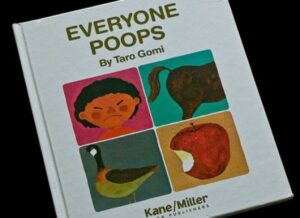Everything You Always Wanted To Know (But Were Afraid to Ask) About Your Poop

We’re all filters of sorts, taking in matter, using what we can and releasing the rest to serve whatever purpose the Universe has for… um, waste. And it’s not just earthlings—every tiny atom, black hole and galaxy share three traits: Ingesting, absorbing and excreting. Yep, looks like it’s an authentic Intergalactic Poop Party. Still, that doesn’t make Potty Time any less awkward to discuss (And, no, I didn’t lose the OA office pool, I volunteered to write this!). Bowel movements are indicators of our overall health. Do you know what to look for?
What should it look like? Dr. Oz says a healthy bowel movement should be “S” shaped and well formed. Thin strands can indicate intestinal blocks. Hard clumps can mean you’re dehydrated. Mucousy layers can result from malabsorption, possibly from food allergies. Loose or watery stools could mean bacterial infection. Black and tarry stool can indicate bleeding in the upper GI. Dark brown? Did you drink a lot of wine last night? Lots of red or purple can be from beets. Very pale can be a sign of gallbladder or liver issues. Greenish may mean cut down on your sugar intake.
What’s it supposed to smell like? Each person’s intestinal flora is different, and you know when something smells off. A strong, acrid odor usually indicates imbalance in bacteria, or too much animal protein. Want poop that smells like roses? Eat them.
How often should I go? There are lots of opinions on this, and every body is different, but at least once a day is an excellent minimum, but even as much as 3-5 times per day is normal. The digestive tract likes a schedule, which can be thrown off by travel and other changes in routine. A frequent urgent need to go could be a sign of something serious, and you should see a physician if it does not clear up within a few days.
What’s the best thing to do if I can’t go? Dehydration and lack of physical activity are the main causes of constipation, which can be a serious, chronic condition that can lead to autoimmune diseases and colon or breast cancer. If adding water and exercise doesn’t help, decrease your gluten intake, up your fruits and veggies, and then consult with your doctor if that doesn’t help.
What are the best foods for proper elimination? Plant matter is the most important food for digestive health. They provide the fiber to properly sweep through the colon and create bulky stool so that you don’t strain. Fruits, vegetables, whole grains and legumes should make up the majority of every meal. Every meal!
Keep in touch with Jill on Twitter @jillettinger
image: bigcityal

